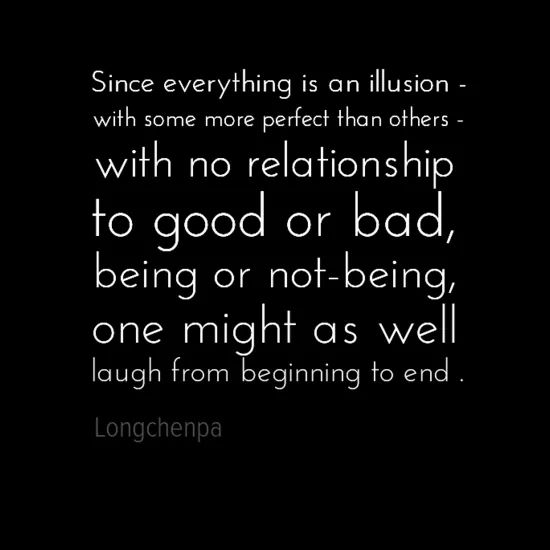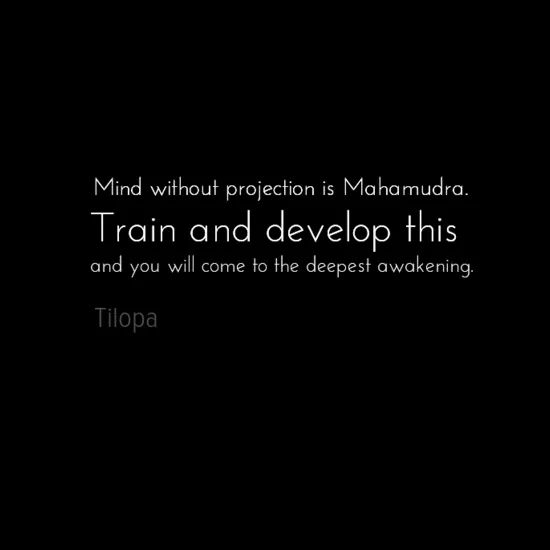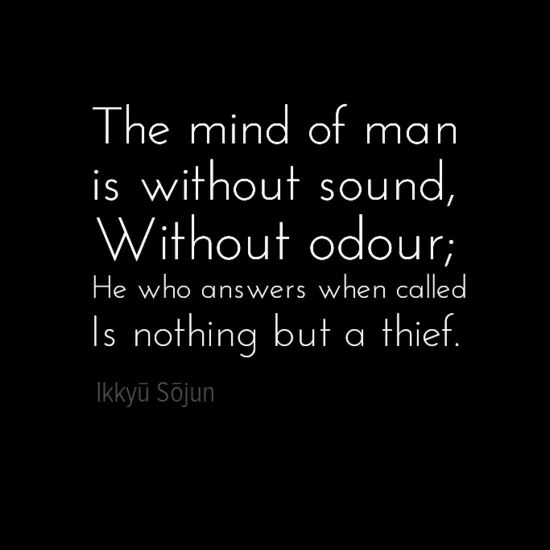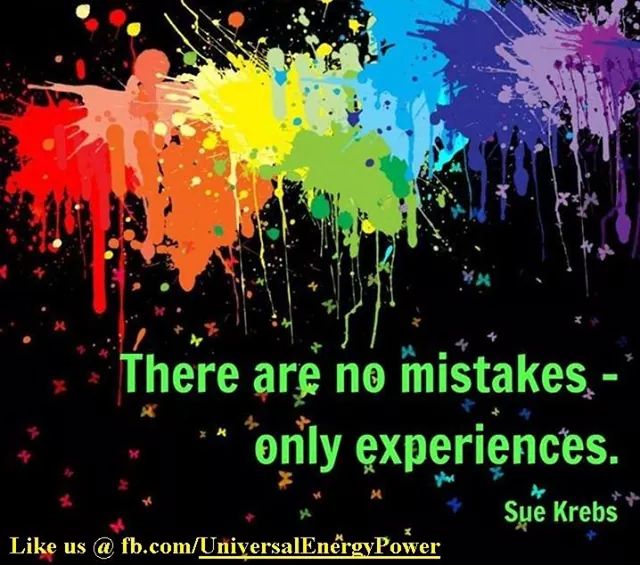Saturday, 31 December 2016
Intelligence Isn't Black-and-White: There Are 8 Different Kinds
What does it mean when someone calls you smart or intelligent? According to developmental psychologist Howard Gardner, it could mean one of eight things. In this video interview, Dr. Gardner addresses his eight classifications for intelligence: writing, mathematics, music, spatial, kinesthetic, interpersonal, and intrapersonal.
Watch the video
Top Video of 2016 #5: Intelligence Isn't Black-and-White: There Are 8 Different Kinds
Transcript
Howard Gardner: Currently I think there are
eight intelligences that I’m very confident about and a few more that
I’ve been thinking about. I’ll share that with our audience.
The first two intelligences are the ones which IQ tests and other kind of standardized tests valorize and as long as we know there are only two out of eight, it’s perfectly fine to look at them. Linguistic intelligence is how well you’re able to use language. It’s a kind of skill that poets have, other kinds of writers; journalists tend to have linguistic intelligence, orators. The second intelligence is logical mathematical intelligence. As the name implies logicians, mathematicians, scientists have that kind of intelligence. They’re able to do mathematical proofs. They’re able to do scientific reasoning and experimentation.
And it’s great to have language and logical intelligence because most tests really focus on that. And if you do well in those tests as long as you stay in school, you think you’re smart. But if you ever walk out into Broadway or the highway or into the woods or into a farm, you then find out that other intelligences are at least this important.
So the third intelligence is musical intelligence and that’s the capacity to appreciate different kinds of musics, to produce the music by voice or by an instrument or to conduct music. And people say well music is a talent. It’s not an intelligence. And I say well why if you’re good with words is that an intelligence, but if you’re good with tones and rhythms and timbres nobody’s ever given me a good answer which is why it makes sense to talk about musical intelligence. And at certain cultures over history, musical intelligence has been very important.
The fourth intelligence is spatial intelligence. That’s the intelligence which allows us to handle and work in space that’s close by. A chess player would have spatial intelligence. A surgeon would have spatial intelligence. But there’s another variety of spatial intelligence which we use for a much broader navigation. That’s what an airplane pilot or a sea captain would have. How do you find your way around large territory and large space.
Similarly with the fifth intelligence, bodily kinesthetic intelligence, it comes in two flavors. One flavor is the ability to use your whole body to solve problems or to make things. And athletes and dancers would have that kind of bodily kinesthetic intelligence. But another variety is being able to use your hands or other parts of your body to solve problems or make things. A craftperson would have bodily kinesthetic intelligence even if they weren’t particularly a good athlete or dancer.
The sixth intelligence and seventh intelligence have to do with human beings. Interpersonal intelligence is how you understand other people, how you motivate them, how you lead them, how you work with them, how you cooperate with them. Anybody at any workplace with other people needs interpersonal intelligence. Leaders hopefully have a lot of interpersonal intelligence. But any intelligence can be used in a pernicious way so the salesman that sells you something you don’t want for a price you don’t want to pay, he or she has got interpersonal intelligence. It’s just not being used in a way that we might prefer.
The seventh kind of intelligence is difficult to assess, but it’s very important. It’s intrapersonal intelligence. It’s understanding yourself. If we go back a way in history and prehistory, knowledge of yourself probably wasn’t that important because people did what their parents or grandparents did whether they were hunters or fisherman or craftspeople. But nowadays especially in developed society, people lead their own lives. We follow our own careers. We often switch careers. We don’t necessarily live at home as we get older. And if you don’t have a good understanding of yourself, you are in big trouble.So that’s intrapersonal intelligence.
The eighth intelligence which I added some years ago is the naturalist intelligence. And that’s the capacity to make important, relevant discriminations in the world of nature between one plant and another, between one animal and another. It’s the intelligence of the naturalist, the intelligence of Charles Darwin. I missed it the first go around when I wrote about it, but I tried to atone by adding it to my list. And, by the way, you might say well but nature isn’t so important anymore. But in fact everything we do in the commercial world uses our naturalist intelligence. Why do I buy this jacket rather than another one? This sweater rather than another one? One hair style rather than another? Those all make just the naturalist intelligence because the brain is very adaptive. And when an old use of a brain center no longer is relevant, it gets hijacked for something new. So we’re all using our naturalist intelligence even if we never walk out into the woods or into the savannah of East Asia.
The two other intelligences which I’m interested in, one of them is called the teaching or pedagogical intelligence. The intelligence which allows us to be able to teach successfully to other people. Now you could have two people who have exactly the same expertise and knowledge in the field, but one is a very good teacher and the other isn’t. That probably doesn’t surprise individuals so much. But what got me fascinated was as young as two or three, kids already know how to teach. Now what does that mean? You show a child how to do something — let’s say a three- or four-year-old and then you ask the child to explain it to an older person or to a younger person. And even the three- or four-year-old will explain it very differently to a young person, will go through details, point things, and speak slowly. And with an older person it would be much more elliptical and say well you do this and that and then you can figure it out. So that shows as young as three, let’s say, we already have teaching intelligence.
The other one is one which I think is going to be difficult to prove to a skeptic, but I call it existential intelligence. And existential intelligence is the intelligence of big questions. Philosophical questions, artistic questions. What does it mean to love? Why do we die? What’s going to be in the future? My pet bird might have more musical intelligence. The rats who are scurrying around the floor might have more spatial intelligence. But no other animals have existential intelligence. Part of the human condition is to think about questions of existence. And I like to say every five-year-old has existential intelligence because five-year-old are always asking why this, why that.
But the difference between a five-year-old and a philosopher is the five-year-old doesn’t pay too much attention to the answer whereas philosophers and other people who develop existential intelligence are really very interested in how we attack questions like that. So again whether there’s eight intelligences or 10 or 12 is less important to me than having broken the monopoly of a single intelligence which sort of labels you for all time. I think if we lived forever, we could probably develop each intelligence to a very high degree. But life is very short and if you devote too much attention to one intelligence, you’re not going to have much time to work on other kinds of intelligences.
And so the big question is should you play to strength or should you bolster weakness? And that’s a value judgment. Scientists cannot give you an answer to that. If, for example, you want to be a jack of all trades and be very well-rounded then probably you’re going to want to nurture the intelligences which aren’t that strong. If, on the other hand, you’re dead set on really coming to the top of some particular heap, then you’re probably going to find the intelligences that you’re strongest at and really push those. And, you know, if a parent came to me and said well should we supplement or should we accentuate, I would say well tell me what you would like your child to do. Or better let the child tell you what he or she wants to do rather than say well science says you should do one or the other. I think it’s a question of values, not of science.
Some people think there’s such a thing as humor intelligence. But, in fact, I don’t. I think humor intelligence is simply the operation of a logical intelligence in some realm like human nature or physical nature or the workplace. And what happens is in humor, there’s a certain expectation and you flip that expectation so it’s logic but it’s logic that’s played out in different kinds of ways. People had mentioned there’s such a thing as a cooking intelligence, a humor intelligence, and a sexual intelligence. And I quipped well that can’t be intelligences because I don’t have any of them.
The first two intelligences are the ones which IQ tests and other kind of standardized tests valorize and as long as we know there are only two out of eight, it’s perfectly fine to look at them. Linguistic intelligence is how well you’re able to use language. It’s a kind of skill that poets have, other kinds of writers; journalists tend to have linguistic intelligence, orators. The second intelligence is logical mathematical intelligence. As the name implies logicians, mathematicians, scientists have that kind of intelligence. They’re able to do mathematical proofs. They’re able to do scientific reasoning and experimentation.
And it’s great to have language and logical intelligence because most tests really focus on that. And if you do well in those tests as long as you stay in school, you think you’re smart. But if you ever walk out into Broadway or the highway or into the woods or into a farm, you then find out that other intelligences are at least this important.
So the third intelligence is musical intelligence and that’s the capacity to appreciate different kinds of musics, to produce the music by voice or by an instrument or to conduct music. And people say well music is a talent. It’s not an intelligence. And I say well why if you’re good with words is that an intelligence, but if you’re good with tones and rhythms and timbres nobody’s ever given me a good answer which is why it makes sense to talk about musical intelligence. And at certain cultures over history, musical intelligence has been very important.
The fourth intelligence is spatial intelligence. That’s the intelligence which allows us to handle and work in space that’s close by. A chess player would have spatial intelligence. A surgeon would have spatial intelligence. But there’s another variety of spatial intelligence which we use for a much broader navigation. That’s what an airplane pilot or a sea captain would have. How do you find your way around large territory and large space.
Similarly with the fifth intelligence, bodily kinesthetic intelligence, it comes in two flavors. One flavor is the ability to use your whole body to solve problems or to make things. And athletes and dancers would have that kind of bodily kinesthetic intelligence. But another variety is being able to use your hands or other parts of your body to solve problems or make things. A craftperson would have bodily kinesthetic intelligence even if they weren’t particularly a good athlete or dancer.
The sixth intelligence and seventh intelligence have to do with human beings. Interpersonal intelligence is how you understand other people, how you motivate them, how you lead them, how you work with them, how you cooperate with them. Anybody at any workplace with other people needs interpersonal intelligence. Leaders hopefully have a lot of interpersonal intelligence. But any intelligence can be used in a pernicious way so the salesman that sells you something you don’t want for a price you don’t want to pay, he or she has got interpersonal intelligence. It’s just not being used in a way that we might prefer.
The seventh kind of intelligence is difficult to assess, but it’s very important. It’s intrapersonal intelligence. It’s understanding yourself. If we go back a way in history and prehistory, knowledge of yourself probably wasn’t that important because people did what their parents or grandparents did whether they were hunters or fisherman or craftspeople. But nowadays especially in developed society, people lead their own lives. We follow our own careers. We often switch careers. We don’t necessarily live at home as we get older. And if you don’t have a good understanding of yourself, you are in big trouble.So that’s intrapersonal intelligence.
The eighth intelligence which I added some years ago is the naturalist intelligence. And that’s the capacity to make important, relevant discriminations in the world of nature between one plant and another, between one animal and another. It’s the intelligence of the naturalist, the intelligence of Charles Darwin. I missed it the first go around when I wrote about it, but I tried to atone by adding it to my list. And, by the way, you might say well but nature isn’t so important anymore. But in fact everything we do in the commercial world uses our naturalist intelligence. Why do I buy this jacket rather than another one? This sweater rather than another one? One hair style rather than another? Those all make just the naturalist intelligence because the brain is very adaptive. And when an old use of a brain center no longer is relevant, it gets hijacked for something new. So we’re all using our naturalist intelligence even if we never walk out into the woods or into the savannah of East Asia.
The two other intelligences which I’m interested in, one of them is called the teaching or pedagogical intelligence. The intelligence which allows us to be able to teach successfully to other people. Now you could have two people who have exactly the same expertise and knowledge in the field, but one is a very good teacher and the other isn’t. That probably doesn’t surprise individuals so much. But what got me fascinated was as young as two or three, kids already know how to teach. Now what does that mean? You show a child how to do something — let’s say a three- or four-year-old and then you ask the child to explain it to an older person or to a younger person. And even the three- or four-year-old will explain it very differently to a young person, will go through details, point things, and speak slowly. And with an older person it would be much more elliptical and say well you do this and that and then you can figure it out. So that shows as young as three, let’s say, we already have teaching intelligence.
The other one is one which I think is going to be difficult to prove to a skeptic, but I call it existential intelligence. And existential intelligence is the intelligence of big questions. Philosophical questions, artistic questions. What does it mean to love? Why do we die? What’s going to be in the future? My pet bird might have more musical intelligence. The rats who are scurrying around the floor might have more spatial intelligence. But no other animals have existential intelligence. Part of the human condition is to think about questions of existence. And I like to say every five-year-old has existential intelligence because five-year-old are always asking why this, why that.
But the difference between a five-year-old and a philosopher is the five-year-old doesn’t pay too much attention to the answer whereas philosophers and other people who develop existential intelligence are really very interested in how we attack questions like that. So again whether there’s eight intelligences or 10 or 12 is less important to me than having broken the monopoly of a single intelligence which sort of labels you for all time. I think if we lived forever, we could probably develop each intelligence to a very high degree. But life is very short and if you devote too much attention to one intelligence, you’re not going to have much time to work on other kinds of intelligences.
And so the big question is should you play to strength or should you bolster weakness? And that’s a value judgment. Scientists cannot give you an answer to that. If, for example, you want to be a jack of all trades and be very well-rounded then probably you’re going to want to nurture the intelligences which aren’t that strong. If, on the other hand, you’re dead set on really coming to the top of some particular heap, then you’re probably going to find the intelligences that you’re strongest at and really push those. And, you know, if a parent came to me and said well should we supplement or should we accentuate, I would say well tell me what you would like your child to do. Or better let the child tell you what he or she wants to do rather than say well science says you should do one or the other. I think it’s a question of values, not of science.
Some people think there’s such a thing as humor intelligence. But, in fact, I don’t. I think humor intelligence is simply the operation of a logical intelligence in some realm like human nature or physical nature or the workplace. And what happens is in humor, there’s a certain expectation and you flip that expectation so it’s logic but it’s logic that’s played out in different kinds of ways. People had mentioned there’s such a thing as a cooking intelligence, a humor intelligence, and a sexual intelligence. And I quipped well that can’t be intelligences because I don’t have any of them.
The 6 Best Mindfulness Apps Of 2016
1) Headspace
2) Stop, Breathe & Think
3) Calm
4) Buddhify
5) Omvana
6) Moodnotes
For details check the article The 6 Best Mindfulness Apps Of 2016 - Wisdom Pills
Friday, 30 December 2016
The Art of Meditation
The worlds happiest man" philosopher Matthieu Ricard explains how we can train our minds in habits of well-being.
The Cab Ride I’ll Never Forget
“I just try to treat my passengers the way I would want my mother treated.”
Take some time out to read this inspiring story:
The Cab Ride I’ll Never Forget
5 Philosophers Who Could Make or Break Your Relationship
Romantic relationships are difficult to get right no matter how hard we try. Thankfully, philosophers and other big thinkers have weighed in and offered advice. Here’s who you should trust with relationship advice – and who you should run from.
WHO TO TRUST
- Simone de Beauvoir
- Søren Kierkegaard
- C.S. Lewis
WHO TO IGNORE
- Jean-Paul Sartre
- Albert Camus
Read the full article... 5 Philosophers Who Could Make or Break Your Relationship
Scientists Can Succeed At Any Age - So Can You. Here's How
Have You Peaked Too Early or Left It Too Late?
Here's What We Can Learn From Great Scientists
Scientists can have their big break any point in their career.
A new paper published in the journal Science determined that from a big data analysis on scientific careers from 1893 to 2010. The research team, led by Roberta Sinatra and Albert-László Barabási of Northeastern University, determined that a scientist can make a lasting impact with their research from the very first published paper to the very last. There is no definite trajectory for success, and every successful scientist’s career is a mix of skill, persistence, and luck...
Read the full article Scientists Can Succeed At Any Age - So Can You. Here's How
Thursday, 29 December 2016
Spirituality an Inspiring Speech
Spirituality an Inspiring Speech
Gaur Gopal Prabhu is an international lifestyle coach, known for using humor in his talks that helps the audience connect and digest the philosophy in a sublime and easy manner.
Is it Time to Forgive Your Parents? It’s Your Choice to Say “When”
When you think about your parents, or
the people who raised you, what comes to mind? Do you feel a sense of
peace and well-being that they taught you to be an upstanding person? Or
do you feel a twinge of guilt or resentment for them? Perhaps you feel
very angry for the subtle or not-so-subtle infringements on your
personhood they imposed throughout the years. For some people, there may
be feelings of distress over abandonment.
All of these feelings are to be expected, depending on what sort of childhood you had growing up. All parents and/or caregivers instill their conscious and subconscious beliefs into their children. This is completely natural. It is also natural for you to feel the way you do, depending on the sort of childhood you had. However, there must come a time for maturity to take over and help you learn from their mistakes, so that you can be the person you were meant to be.
To do this, you must take some steps to
completely free yourself from the feelings you have been harboring all
these years. Depending on how old you are, you may have a large amount
of resentment that has progressively built up. Not
to worry though, because forgiveness is not based on the quantity of
missteps your parents made. Rather, it is up to you work at it as a
batch effort. After all, what is the point of forgiving for one thing,
but clinging to the negativity of another?
All of these feelings are to be expected, depending on what sort of childhood you had growing up. All parents and/or caregivers instill their conscious and subconscious beliefs into their children. This is completely natural. It is also natural for you to feel the way you do, depending on the sort of childhood you had. However, there must come a time for maturity to take over and help you learn from their mistakes, so that you can be the person you were meant to be.
The First Step is to Recognize Your Feelings.
The Second Step is to Forgive.
The Third Step is to Move On.
Now, You Are Ready to Forgive Yourself.
Read the full article Is it Time to Forgive Your Parents? It’s Your Choice to Say “When”
Wednesday, 28 December 2016
Want to Feel Better? Invest in Kindness
As Americans crawl, battered, into 2017, it can feel like there’s not much right with the world: The exceptional number of heroes we lost, the ugliest, most divisive U.S. presidential campaign in memory, and long-standing problems — racial and economic inequities, climate change — seeming to get worse, not better. But look closer. There are, as there have always been, caring people out there giving of themselves. The message their work sends is clear and so sorely needed that it can bring tears to your eyes: If we just do what we can do, even — or maybe especially — on a local level, there’s still reason to be hopeful for us all....
Read the full Article Want to Feel Better? Invest in Kindness
Free Online Course on Mindfulness
De-Mystifying Mindfulness
About this course: Interest
in meditation, mindfulness, and contemplation has grown exponentially
in recent years. Rather than being seen as mystical practices from
ancient Buddhism or esoteric philosophy, they are increasingly seen as
technologies rooted in evidence from psychology and neuroscience.
Mindfulness has become the basis for numerous therapeutic interventions,
both as a treatment in healthcare and as a means of enhancing
well-being and happiness. For millions around the world, mindfulness
has become a life-style choice, enhancing and enriching everyday
experience. Mindfulness is big business.
But, what actually is mindfulness? Is it really good for you? Can
anyone learn it? How can you recognize charlatans? Would you want to
live in a mindful society, and would it smell like sandalwood? What
does it feel like to be mindful? Are you mindful already, and how would
you know?
Evolving from the popular Honours Academy course at Leiden University,
this innovative course combines conventional scholarly inquiry from
multiple disciplines (ranging from psychology, through philosophy, to
politics) with experiential learning (including specially designed
‘meditation labs,’ in which you’ll get chance to practice and analyze
mindfulness on yourself). In the end, the course aims to provide a
responsible, comprehensive, and inclusive education about (and in)
mindfulness as a contemporary phenomenon.
Who is this class for: This
course does not require previous knowledge of the subject. It has been
designed both for practitioners of Mindfulness who are seeking to
deepen or broaden their knowledge and understanding, as well as for
students of the Natural Sciences, Social Sciences, or Humanities who are
keen to understand the significance and meaning of Mindfulness for
their fields.
In addition, Mindfulness coaches, teachers, and
therapists may find that this course helps them to consolidate and
bolster their professional knowledge base.
In keeping with the nature of the material and the purpose of the
course, this course is free, and will remain free for participants. If
you are interested in receiving a formal certificate, there will be a
fee to cover costs.
For details see the link De-Mystifying Mindfulness
Tuesday, 27 December 2016
Introduction to Pranic Healing Part 2
May this introduction (Part 2/2) lead you to a greater interest in the teachings, practices and technology of Grand Master Choa Kok Sui to improve your life and happiness.
Introduction to Pranic Healing
May this introduction (Part 1/2) lead you to a greater interest in the
teachings, practices and technology of Grand Master Choa Kok Sui to
improve your life and happiness.
Subscribe to:
Comments (Atom)
Mudita - An Alternative to Envy
Mudita When we are scrolling through Facebook or Instagram we often feel envy looking at other people’s success or golden mome...

-
सहज मिले सो दूध है , माँगि मिले सो पानि। कहैं कबीर वह रक्त है , जामें ऐंचा-तानि॥ कबीर जो चीज बिना माँगे स्वतः मिल जाए , वह दू...
-
जाल परे जल जात बहि , तजि मीनन को मोह। रहिमन मछरी नीर को , तऊ न छाँड़ति छोह॥ रहीम जैसे ही जाल डाला जाता है ...




















































